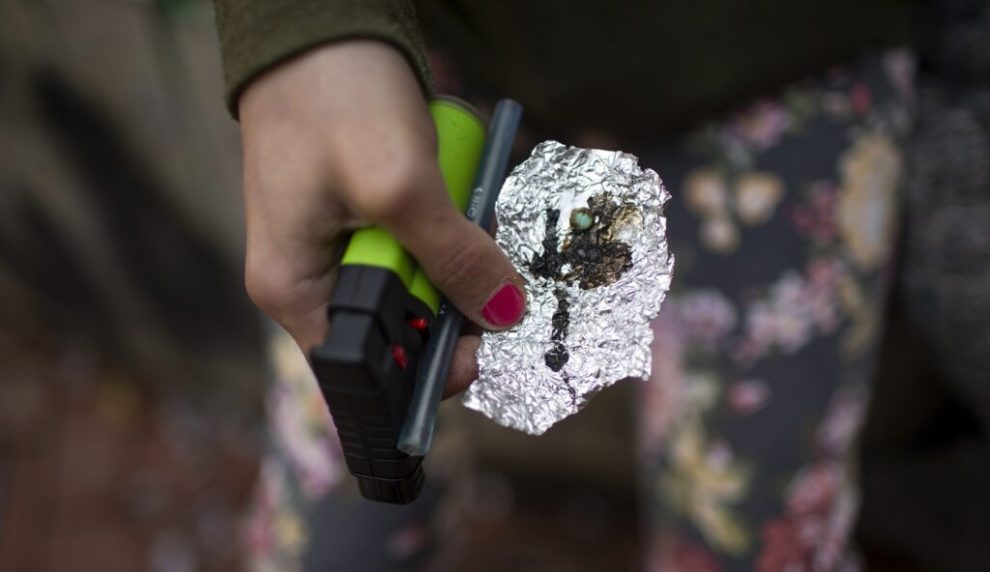Oregon was the first state to vote entirely by mail, the first state to offer over-the-counter birth control, and the first state to legalize physician-assisted suicide.
Three years ago, Oregon embarked on another first-in-the-nation feat: Passing a policy to decriminalize hard drugs in an attempt to focus on treatment over punishment to help turn the drug tide and create a new model for drug policy around the country.
But overdose deaths, crime, and homelessness tied to addiction now demand action and have forced Oregon to recriminalize hard drugs.
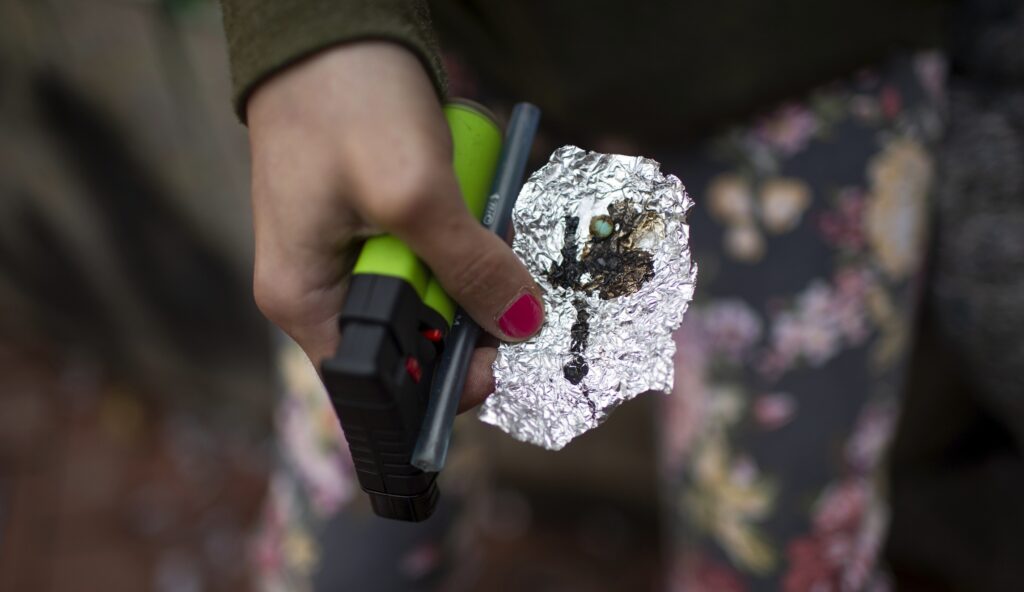
On Sunday, Measure 110, Oregon’s 3 1/2-year experiment will come to an end, and possession of small amounts of drugs will once again be considered a misdemeanor crime.
Fed-up residents say it’s about time.
Drug addiction advocates and social justice groups say going back to the old method is a major setback and unfairly prioritizes the voices of police over marginalized people.
“This is an ache,” said Danita Harris, deputy director of the Portland-based advocacy group Imagine Black. “It hurts in a very real way.”
Democratic state Sen. Kayse Jama, who voted against criminalizing drugs, said the reversal “will have devastating impacts on communities of color and low-income Oregonians, burdening our already-strained justice system while failing to address the root causes of our addiction crisis.”
A majority of residents see it differently.
One Oregonian named Kai told KGW News Measure 110 “must be repealed.”
“The country’s biggest mental institution will have to be built to deal with the after-effects of just two years of this social experiment, bearing the flag of compassion, harm reduction, access to treatment, saving lives, and, of course, saving taxpayers money,” he said. “It is such a humanitarian disaster.”
Oregon ranks as one of the most challenged states for substance abuse while being among the worst states for “access and engagement with care,” according to a 2019 government report that detailed Oregon’s shortcomings in dealing with drug abuse.
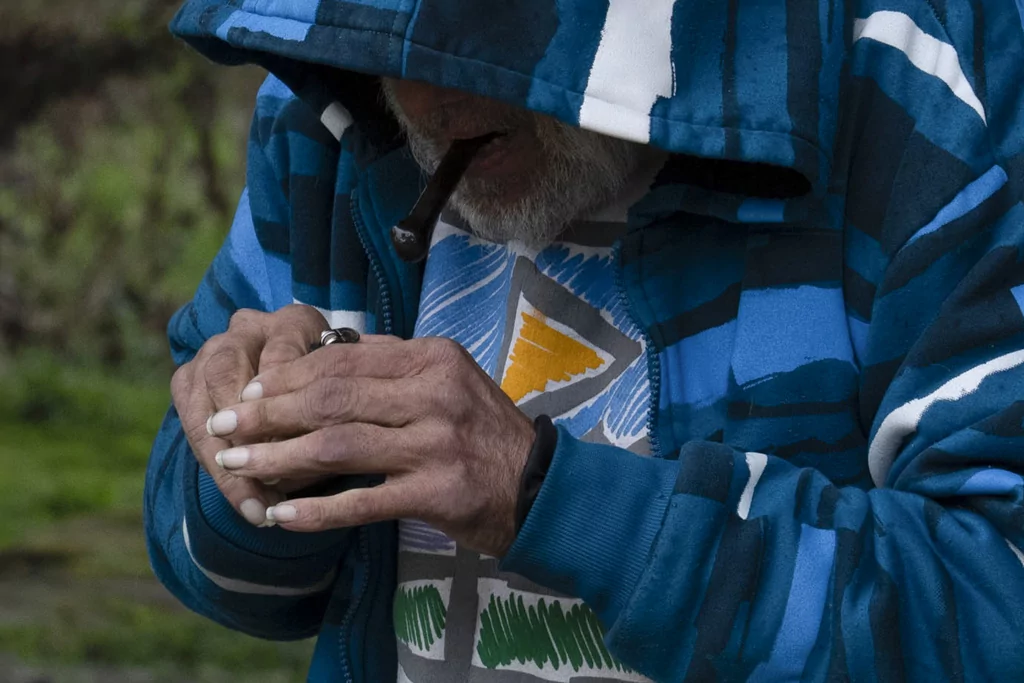
Michele Stroh, an Oregon City School Board member, spoke to lawmakers at a standing-room-only hearing in February on whether to modify Measure 110. Stroh’s 25-year-old son died in 2020 of a fentanyl overdose.
“He never stood a chance,” she said about the synthetic drug’s potency and availability.
Cat and Chad Sewell, owners of Sewell Sweets in Salem, Oregon, said out-of-control drug use led to conflicts outside their business.
“The scenes that we see day in and day out leave us frustrated and questioning just how safe the longevity of our business and livelihood is,” the couple wrote to lawmakers, begging them to reverse course.
So, how did it all go so wrong?
Beginning of the experiment: Measure 110
In 2020, voters in Oregon approved a ballot measure to decriminalize the possession of small amounts of hard drugs.

That meant those who had small amounts of fentanyl, cocaine, heroin, and methamphetamines wouldn’t go to jail but would be issued a violation, similar to a traffic ticket.
Possession of larger amounts of hard drugs could result in misdemeanor charges, and in some cases, when the amount was considered a commercial level, possession could still count as a felony.
The measure also funneled hundreds of millions of dollars generated from the cannabis tax revenue to fund recovery programs.
Measure 110 passed with 58% of the vote in 2020, but three years later, polling showed that 64% wanted some or all of it repealed.
The problem was that the money was slow to get out the door to health and substance abuse authorities, who were already in the middle of the coronavirus pandemic and struggling. As the pandemic raged, the fentanyl crisis in Oregon only got worse and sparked spikes in fatal overdoses.
Convictions don’t equal success
People who were caught with drugs under Measure 110 were given citations.
They had the option to pay a $100 fine through the court system or call a helpline. They didn’t need to go to a drug treatment facility. They didn’t need to provide proof they were on their way to cutting the addiction. All they had to do was call and the $100 fine and charge would disappear.
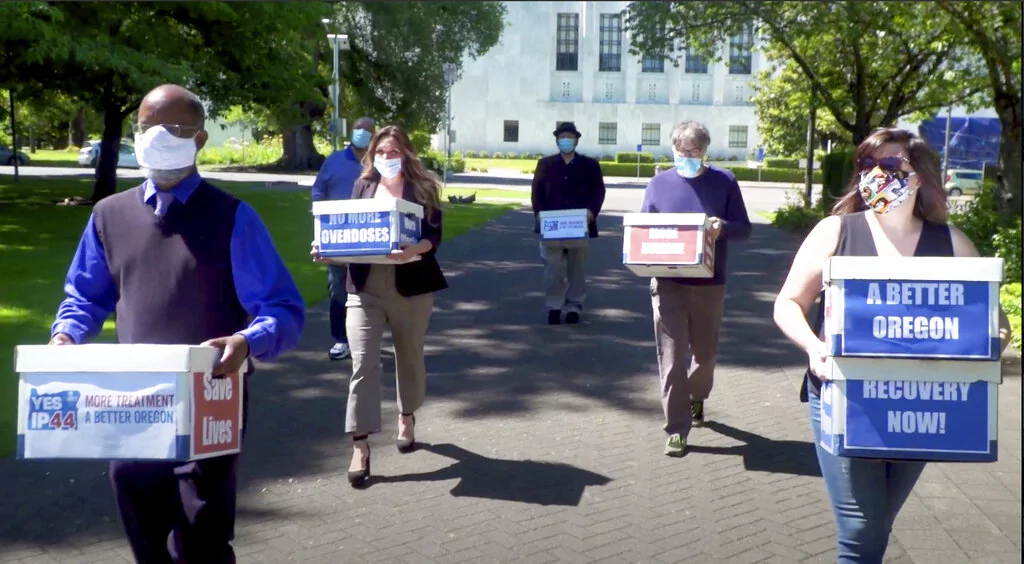
State data show most people did neither.
Since Measure 110 went into effect on Feb. 1, 2021, 7,227 citations were written for $899,413. Of that, the state collected $78,143.
The conviction rate was 89% — but it was only that high because the overwhelming majority of people cited were no-shows in court, according to the Oregon Judicial Department.
Of all the people slapped with citations, only 85 completed the substance abuse screening, which allowed them to avoid a conviction.
Law enforcement officers handed out the most citations for people doing methamphetamine, at 54%. Fentanyl was the second most popular drug at 31%, heroin at 7%, oxycodone at 3%, and cocaine at 1%.
Portland, the state’s largest city, is in Multnomah County, which is Oregon’s smallest yet most populous county. Nearly 2,000 citations linked to Measure 110 were written there. The conviction rate was 93%, though the high number stems from nearly everyone skipping their court dates. In all, there were only 16 people in the county who completed the mandatory drug abuse screening.
Law enforcement officers from Medford, Oregon, a city with a total population of 85,824, wrote the most number of citations. According to state data, they issued 2,036 tickets, 1,260 of which involved methamphetamines. The Oregon State Police wrote the second-highest number of citations, at 1,756. Of those, 823 were linked to methamphetamines, and 744 involved fentanyl or other Schedule II drugs, which are substances that are classified as having a high potential for abuse.
Max Williams, a former Republican state lawmaker, told the Oregon Capital Chronicle that “almost all Oregonians would agree that it’s made things worse.”
“It’s clear that the citation approach isn’t working,” added Williams, a former director of the Oregon Department of Corrections. “Giving somebody a ticket that’s actually less than a parking ticket in most communities isn’t going to motivate a person who is deep in their addiction to try to address this issue.”
Blame for the ‘botched implementation’
Portland Mayor Ted Wheeler told the New York Times he was “cautiously optimistic” when Measure 110 was passed.
However, that optimism dissolved into dismay.
“There is no question that the state botched the implementation,” he admitted. “And as I say, the timing couldn’t have been worse.”
When it came to the “botched implementation,” the mayor said. “To decriminalize the use of drugs before you actually had the treatment services in place was obviously a huge mistake.”
“With the benefit of hindsight, the way that should have been structured is that it would create the mechanism for funding,” he added. “The state would build up its behavioral health services, and when it reached a certain threshold, then they would decriminalize. It shouldn’t have gone the other way around.”
While Wheeler said he didn’t think all of Portland’s drug problems could be linked to Measure 110, he sees how “very easy” it is for “the public to draw a line between the passage of Measure 110, the decriminalization of hard drugs, the increase in addiction, the increase in overdoses, and criminal activity associated with drugs.”
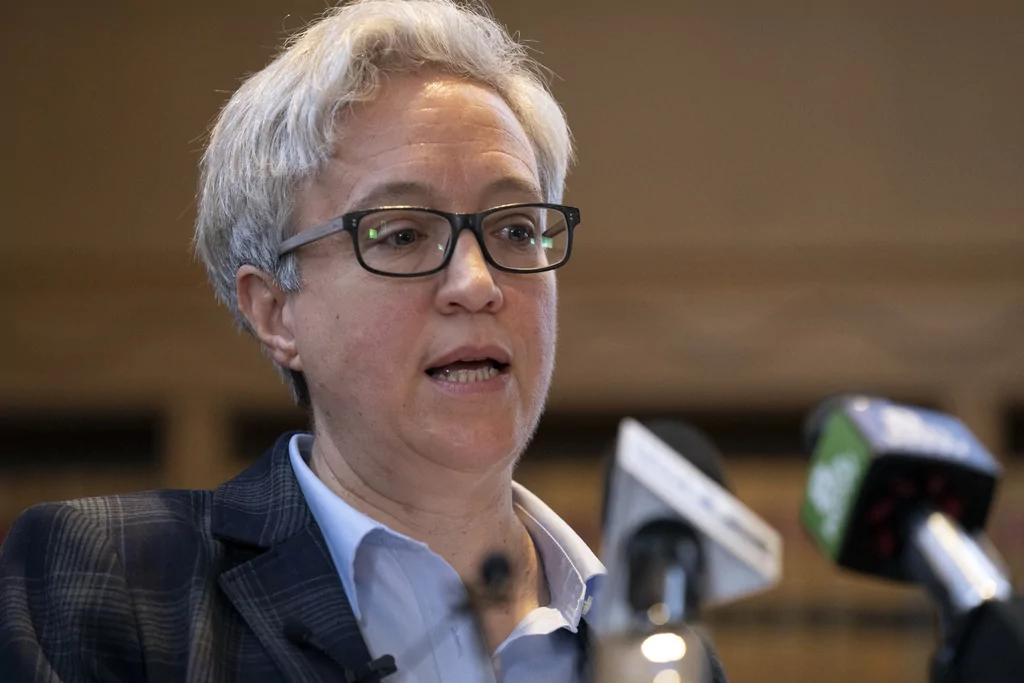
So who is to blame? Well, there’s a lot of it to go around.
Oregon’s political leaders played massive roles in Measure 110’s failure.
They were unable to give law enforcement the tools necessary to connect people with lifesaving services under Measure 110. They declined to fund a proposed $50,000 online course that would have given authorities more guidance on how to better use the new law, what it said, and how it should be enforced.
They ignored recommendations to get police officers to meet with treatment providers so each side would know what the other faced. There were also unmeetable timelines in place that made little to no sense for implementing the new law in the middle of a global pandemic.
Mike Marshall, director of the rehab and prevention advocacy nonprofit organization Oregon Recovers, told Oregon Public Broadcasting that he was initially opposed to Measure 110, but once it passed, he decided to give it a chance. He was shocked at how bad things had become.
“They didn’t see that the voters gave them this really imperfect tool but were committed to reducing substance use disorder rates and increased access to treatment,” Marshall said. “Instead, they simply tried to do the least amount of work to administer it to the letter of the law.”
Back to reality
On April 1, 2024, Gov. Tina Kotek (D-OR) signed a bill into law that rolled back parts of it by making personal use possession a misdemeanor punishable by jail time.
The law, which goes into effect Sunday, also established ways for treatment to be offered as an alternative to criminal penalties by creating deflection programs to divert people to addiction and mental health services instead of languishing in Oregon’s already crowded criminal justice system.
CLICK HERE TO READ MORE FROM THE WASHINGTON EXAMINER
The legislation marks a significant turning point in Oregon’s approach to drug regulation and a deep pivot from past policies.
Kotek said the new law’s success would depend on “deep coordination” between courts, police, prosecutors, defense attorneys, and local mental health providers.







